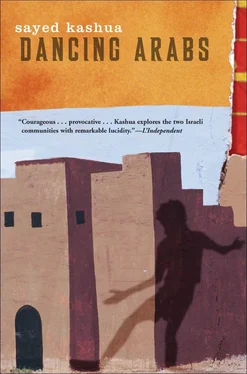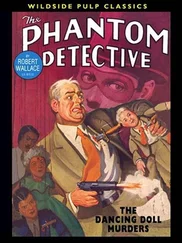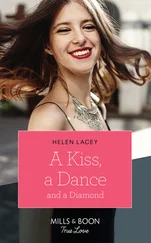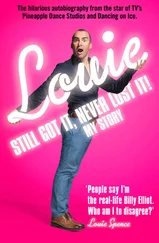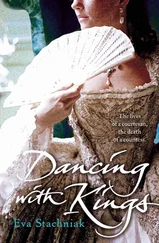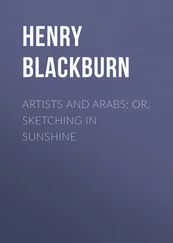I didn’t talk with my father during the days of mourning. He was too busy. Yesterday was the third day. The women sat in my aunt’s house, and the men came to ours. The relatives from Ramallah and Bakat el-Hatab slept over and joined us in greeting the people who came to extend their condolences. It was a tragedy. They talked about it on the evening news in Arabic: the cold-blooded murder of a boy playing ball. My job was to stand at the entrance with little cups of coffee and a large coffeepot and pour bitter sada coffee for everyone who arrived. My father just sat there the whole time. He cried at Ali’s funeral. Later I heard him say it was the first time he’d ever cried over someone who’d died.
I go up to the fifth floor, into the cardiology ward, and look for room 12. If my father asks, I’ll tell him my studies are going well and I’m about to complete my final. I really am studying. If everything continues smoothly, I’ll enroll in one of the departments at Hebrew University next year. Not anything exciting, because my grades aren’t high enough, but it hardly matters anymore. The main thing is I’ll have a degree.
My father is in the bed nearest the door, drinking coffee. He greets me with a surprised Ahalan, and I get the feeling he’s glad to see me. He asks if I’m on my way back to Jerusalem and says he’s got to have a cigarette. Then he asks me to go down to the newsstand to get him a paper, and we’ll look for a place where he can read the paper and smoke.
He looks fine, nothing out of the ordinary, hooked up to a flickering machine that’s monitoring something, and that’s all. I’ll get the paper. I’ll ask if he needs anything else, and then I’ll leave. I’m working today. Besides, I need to get away from this atmosphere. I’ve got a headache already.
Those three days were rough. It was the first time I’d seen a dead body. I hadn’t realized how much Ali had grown. The mustache over his upper lip was beginning to show. The body was naked, with an autopsy incision stretching from his stomach to his neck. Too bad I saw it. The incision had been sewn up hastily with coarse black thread. When the body washers ran out of water, they shoved a bucket in my hand and asked me to hurry. When I realized I couldn’t take it anymore, I got out of there and headed home. I said I was going to help set up the chairs and make coffee.
After the funeral, all the men in the family gathered at our house and talked about revenge. The relatives from the West Bank said they would do anything, but there was nobody to kill. The three druggie brothers had been arrested, and the police had moved the rest of their family to a different village. Most of the adults in our family stayed put, while a few of the younger ones huddled in the corner, whispering. My father was older, but he joined them. It was obvious they were planning something. Aunt Fahten walked over to the mourners’ tent where the men were seated. She was allowed in there, because she was a widow. She’s a strong woman, and wise. She stood in the middle and shouted, “There won’t be a single man among you unless you find a way of consoling Ali’s mother! Unless you do something that will comfort her!”
The stream of callers didn’t let up. From time to time, I switched places with my older brother. He poured the coffee and I washed the dishes. My father was busy the whole time. He never just sat in the tent. He kept going in and out of the house through the back door. He took a few bus trips, car trips too. Around 8 P.M. he came down to the shed, and a few seconds after he sat down we heard a loud boom. Father had a proud look in his eyes. Soon a young guy came in and whispered something to him. Father left the shed again, took the car, and came back within five minutes with two doctors who were relatives of ours. They came with their bags. Someone had been injured out there, but taking him to the hospital was not an option.
I went indoors now too. I didn’t know the person who’d been hurt, but I saw he was wearing my father’s sneakers. He had a gash in his leg from jumping out the window, but he’d be all right. The callers whispered to one another, trying to figure out what had happened. Soon they realized that the murderers’ home had been blown up using the containers of cooking gas.
I come back with the paper. My father’s in bed. When he sees me, he sits up and is about to get to his feet. Suddenly he looks at me with big bulging eyes — frightened, imploring eyes. All at once his forehead is covered in perspiration, and the monitor starts beeping nervously.
I scream to one of the nurses, “My father! My father!” and within seconds there’s a whole team around his bed. They hook him up to oxygen and pull his bed out toward Intensive Care. I follow them, trying to see his face, but I can’t. I can’t get into the elevator with them. I run down the stairs and get to Intensive Care before they do. I’m convinced he’s dead by now. That’s it. There’s no hope. He won’t make it. I start crying. I head for the phone booths next to the elevators. If he doesn’t die now, I’ll stay with him right here in the hospital till the next heart attack kills him.
Half the family arrives, my aunts and their children. My mother is wearing a head scarf. Her eyes are swollen from crying. She heads straight for Intensive Care, and there’s no stopping her. A few of the men want to talk to a doctor, and they ask for someone to come out and tell them what’s happening. They’ve left their shops, their classrooms, and their businesses to come here. That’s all we need now, another tragedy in the family.
The doctor says Father will be okay, but I don’t believe it. I saw him perspiring. I saw his eyes telling me he won’t be back, he’s somewhere else already. They’re allowing me in too now. He’s still alive, but I know it won’t last. They’ve hooked him up to lots more instruments. The doctor says it wasn’t a heart attack, just chest pains. To be on the safe side, they’re leaving him in Intensive Care till they run some more tests. I look at him, and he still looks scared, baffled by what he’s been through. He looks at me, then at Mother, and I know it’s all because of me.
Arabs Called Me a Settler
Arabs called me a settler, their label for anyone who moved into a room that already had two tenants. A third roommate. A squatter. In the Hebrew University dorms, settlers were a big and legitimate group. The rent would be divided three ways, and almost every Arab student welcomed the arrangement. There were just a few city types, mostly from Nazareth, who came to the university in their own cars and didn’t want any settlers in their rooms.
The settlers were usually students who’d been late signing up for the dorms or who’d dragged out their studies for too many years and were no longer eligible for a dorm room. There were only two beds in each room, and when both of them were occupied, the settler would bed down on a mattress. I was the only settler who wasn’t a student. To get into the dorms, which were closely guarded by security guards — some Jewish, some Druze — you had to produce a student ID. Adel gave me his. He told the administration he’d lost it, and I paid the fine for him and gave him the money for a passport photo.
I found a job within a week. It wasn’t hard. In Jerusalem, there are lots of institutions for people with special needs, and they’re always short of attendants. The Jews preferred Arabs who had a blue ID card and could get to work even when there were roadblocks, curfews, or war; not like the Arabs from the West Bank with their orange IDs. This was toward the end of the first Intifada, and the orange ones missed many days of work.
I started working at an institution for the retarded. On my shift, I was responsible for six children, some with Down syndrome and others with different conditions. The retarded kids didn’t like me, and I didn’t like them either. I took them to the bathroom, scrubbed them with a brush, and made sure they were clean. When the girls had their period, I sprayed water on them from a distance. I took them to the dining room, to the occupational workshops, and to the depressing playground. Sometimes, I simply took them on walks through the long buildings. The smell there was terrible, but somehow I got used to it.
Читать дальше
